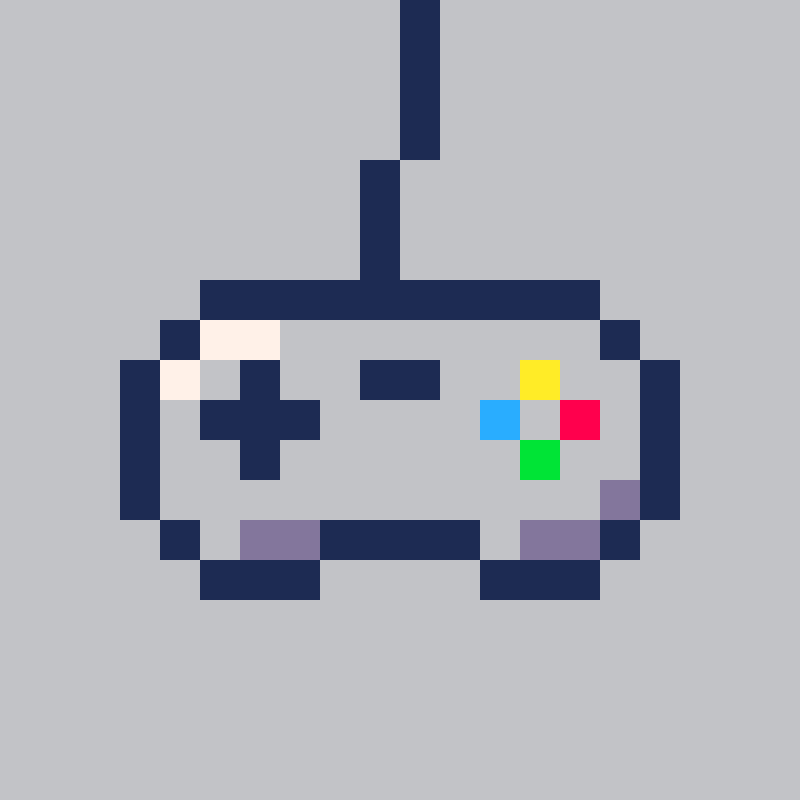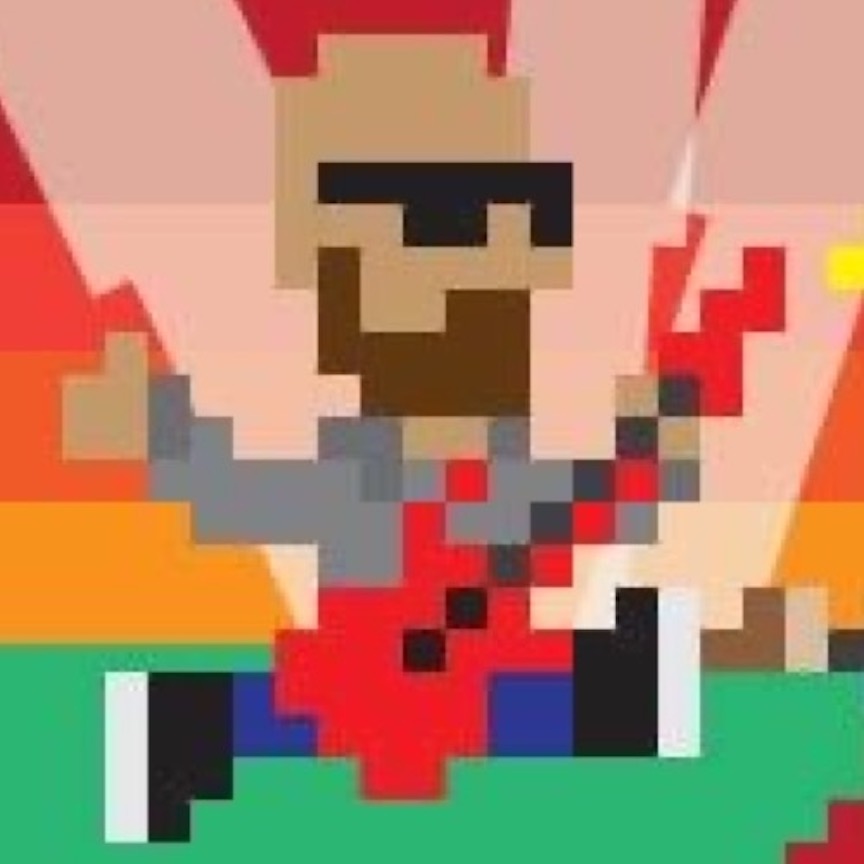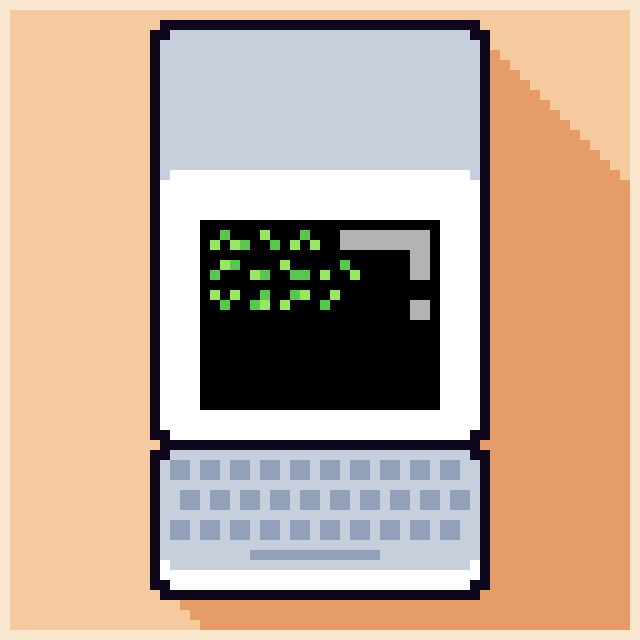Hello all,
With the release of the alpha of Picotron, I've been thinking about how the growth and adoption of Picotron may possibly affect PICO-8 as well.
I'm curious to hear what any of you have to say — Do you think Picotron will make PICO-8 obsolete due to its more advanced tools, or do you think PICO-8 will maintain its appeal? Will much interest from the community flow towards Picotron leaving PICO-8 behind, or do they occupy distinct niches that can coexist?
As someone who has a few PICO-8 projects I have been working on that have yet to be completed/released, I'm wondering which fantasy platform might be more worthwhile in the long run to focus on, if a choice must be made. I wonder what PICO-8 will still have that would continue to attract those who might also be interested in Picotron.
When Picotron gets into full swing, will any of you keep sticking around with PICO-8 or will you mostly switch to the new platform?
Thoughts?

I will still use Pico8 to make demos.
When it has the potential to scale into a large project and the limitations of Pico8 start to show up, I will move it to Picotron.

I think picotron has helped and will help to more firmly define and support pico-8 in its specific goals and niche. Before zep announced machine 3, we always had requests for more colours, more sprites, bigger resolution, a way to attach debugging tools, all kinds of requests which were legitimate for the people making them, but would dilute the definition of pico-8, and the very constraints that are not obstacles but actual qualities and reasons for its success (and the success of devs completing games)
to me, the appeal of pico-8 is still the same. it starts with no unnecessary things, lets me start sprites or code in one second, runs on my raspberry pi with a tiny screen, offers just enough to develop cool gameplay ideas. it’s still a great tool to teach programming, and it’s still the platform with tons of cool little games!
picotron doesn’t take away from any of these, rather it creates its own environment with new ideas, and the constraints that are increased or removed will create their own problems, as we’ll all discover soon :)
it’s probable that some of the great pico-8 game creators will move to picotron (but note we already saw some move to other or homemade engines – had picotron existed, they may have stayed in the lexaloffle galaxy), but we’ll always have the existing p8 games and I’m sure new people making new games

I've only made 1 game so far, but the limitations of P8 are what brought me here. I think Ptron looks awesome and I'd love to see what our more advanced/experienced developers make on this. Full-fledged games with hours of gameplay in them seems possible in the near future. Which is so exciting. But I doubt a hobbyist like myself would be interested in developing as much in the new console. The P8 feels cozy and manageable. Ptron feels like I fantastic "next-step" kind of tool. P8 could live without the Ptron, but not the other way around.

@Mosthumble09, that's a good point. What made me fall in love with PICO-8 is that it doesn't give me too much to think about and lets me focus on the most basic things. Picotron can definitely do more and may be a tool for great full-size games, but it will also be more involved and complex than PICO-8.

Personally I think Pico-8 will continue to have some appeal for small and/or simple games, and bigger or more complex games will tend to end up more on Picotron. Filling up 8x the resolution with art is no trivial thing, and Pico-8 is somewhat simpler to use. At least, I hope that's the case, I've been making some full NES ports to Pico-8, and have ideas for some other projects, and hope people will be interested in them.
Another thing I'm hoping for is that someone will make tools for Picotron that aid development in Pico-8. The 128-pixel-wide code editor is really cramped.

Seconding, merwok's comment. In a sense Pico-8 was obsolete due to more advanced tools from the moment of its inception. By design. Unity and Unreal and Godot, etc. etc. etc. all exist and are all, for all intents and purposes, infinitely more powerful/capable than Pico-8. The limitations and low barrier to entry are part of its appeal.
Picotron's constraints are expanded but it is still constrained. And that additional power comes with additional complexity. You can see it all over the BBS at the moment: auto-installers, dependency managers, etc. Don't get me wrong, I think those are great things and they're going to allow people to do really interesting things. But I think it has the potential to be more intimidating to some people as well. So I don't imagine the appeal of Pico-8 will go away.

I think Pico-8 will continue to be used by those who are nostalgic for the 8 bit era and want to tinker with small game ideas.
I grew up in the 16 bit era with Commodore Amiga so for me Picotron is a much more nostalgic experience, right down to being able to pull down the top menu bar to reveal a hidden desktop and even edit the OS itself and create windowed apps!
I also prefer the much wider code editor in Picotron. I couldn't get on with Pico-8's small character width but I felt like I was "cheating" by using a separate application for writing the code. Pico-8's code editor felt far too restrictive for me. Other's coming from the 8 bit era may feel the opposite.
The wider scope of Picotron may put new coders off. There's a lot more to take in, a bit more work to do with sprites. The audio engine is more complex too.
Personally I feel they compliment each other and Picotron is a progression more than a replacement.

i feel like pico 8 and picotron are so different that pico 8 will not be forgotten, pico 8 is for those who like 8-bit and picotron is for those who like 16-bit, pico 8 is a fantasy console whereas picotron is a fantasy computer/workstation.
[Please log in to post a comment]












